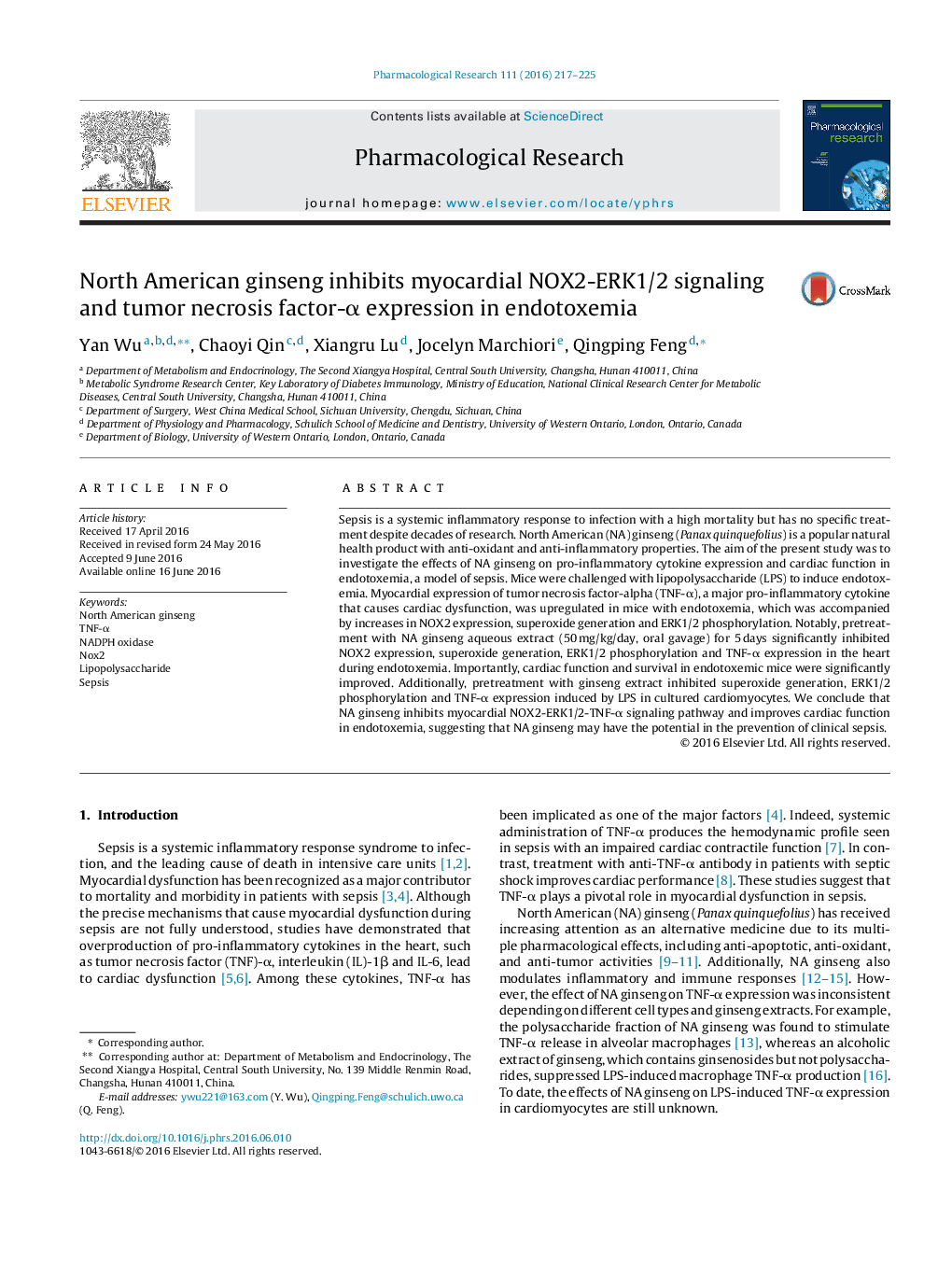| Article ID | Journal | Published Year | Pages | File Type |
|---|---|---|---|---|
| 5843503 | Pharmacological Research | 2016 | 9 Pages |
Sepsis is a systemic inflammatory response to infection with a high mortality but has no specific treatment despite decades of research. North American (NA) ginseng (Panax quinquefolius) is a popular natural health product with anti-oxidant and anti-inflammatory properties. The aim of the present study was to investigate the effects of NA ginseng on pro-inflammatory cytokine expression and cardiac function in endotoxemia, a model of sepsis. Mice were challenged with lipopolysaccharide (LPS) to induce endotoxemia. Myocardial expression of tumor necrosis factor-alpha (TNF-α), a major pro-inflammatory cytokine that causes cardiac dysfunction, was upregulated in mice with endotoxemia, which was accompanied by increases in NOX2 expression, superoxide generation and ERK1/2 phosphorylation. Notably, pretreatment with NA ginseng aqueous extract (50 mg/kg/day, oral gavage) for 5 days significantly inhibited NOX2 expression, superoxide generation, ERK1/2 phosphorylation and TNF-α expression in the heart during endotoxemia. Importantly, cardiac function and survival in endotoxemic mice were significantly improved. Additionally, pretreatment with ginseng extract inhibited superoxide generation, ERK1/2 phosphorylation and TNF-α expression induced by LPS in cultured cardiomyocytes. We conclude that NA ginseng inhibits myocardial NOX2-ERK1/2-TNF-α signaling pathway and improves cardiac function in endotoxemia, suggesting that NA ginseng may have the potential in the prevention of clinical sepsis.
Graphical abstractGinseng pretreatment improves cardiac function in endotoxemia via downregulation of NOX2/ERK/TNF-α pathway.Download high-res image (55KB)Download full-size image
